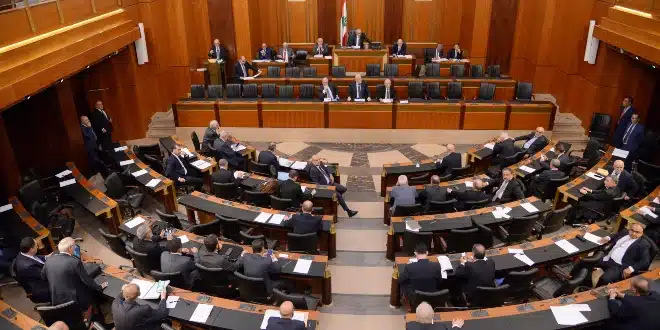Lebanon has taken a significant step toward addressing its ongoing financial crisis by adopting a draft law aimed at restructuring its banking sector. The move is seen as a critical milestone in meeting the reform conditions set by international lenders, particularly the International Monetary Fund (IMF), as the country continues to grapple with an economic collapse that began in 2019.
Information Minister Paul Morcos described the decision as unprecedented, noting it was the first time a Lebanese government had approved such legislation. He emphasized that the draft law has long been sought by both legal and financial experts, as well as by global institutions committed to helping Lebanon stabilize its economy.
The draft legislation comes on the heels of other reform measures, including the recent lifting of banking secrecy laws. Morcos highlighted that these steps align with the requirements laid out in discussions with the IMF and reflect Lebanon’s commitment to securing a new loan agreement. Finance Minister Yassine Jaber, who recently assumed office, has been leading these discussions with the IMF.
The Office of the United Nations Special Coordinator for Lebanon (UNSCOL) welcomed the reform progress, describing the adoption of the draft laws as a sign of the government’s dedication to rebuilding the state’s institutions. UNSCOL also stressed the importance of seeing the reforms pass through parliament and, eventually, implemented effectively.
Morcos confirmed that a third legislative measure is in development and will target the financial deficit directly, marking another critical phase in the country’s reform roadmap.
Later this month, Lebanese officials, including central bank governor Karim Souaid, are expected to meet with IMF representatives during a World Bank meeting in Washington. These talks will focus on Lebanon’s next steps toward unlocking international aid and rebuilding confidence in the country’s financial system.
Since 2019, Lebanon has experienced one of the most severe economic crises in modern history. The national currency has lost the majority of its value, banking restrictions have prevented people from accessing their savings, and poverty rates have soared. The crisis, widely attributed to years of financial mismanagement and political corruption, has prompted repeated calls from the international community for sweeping reforms as a condition for aid.


